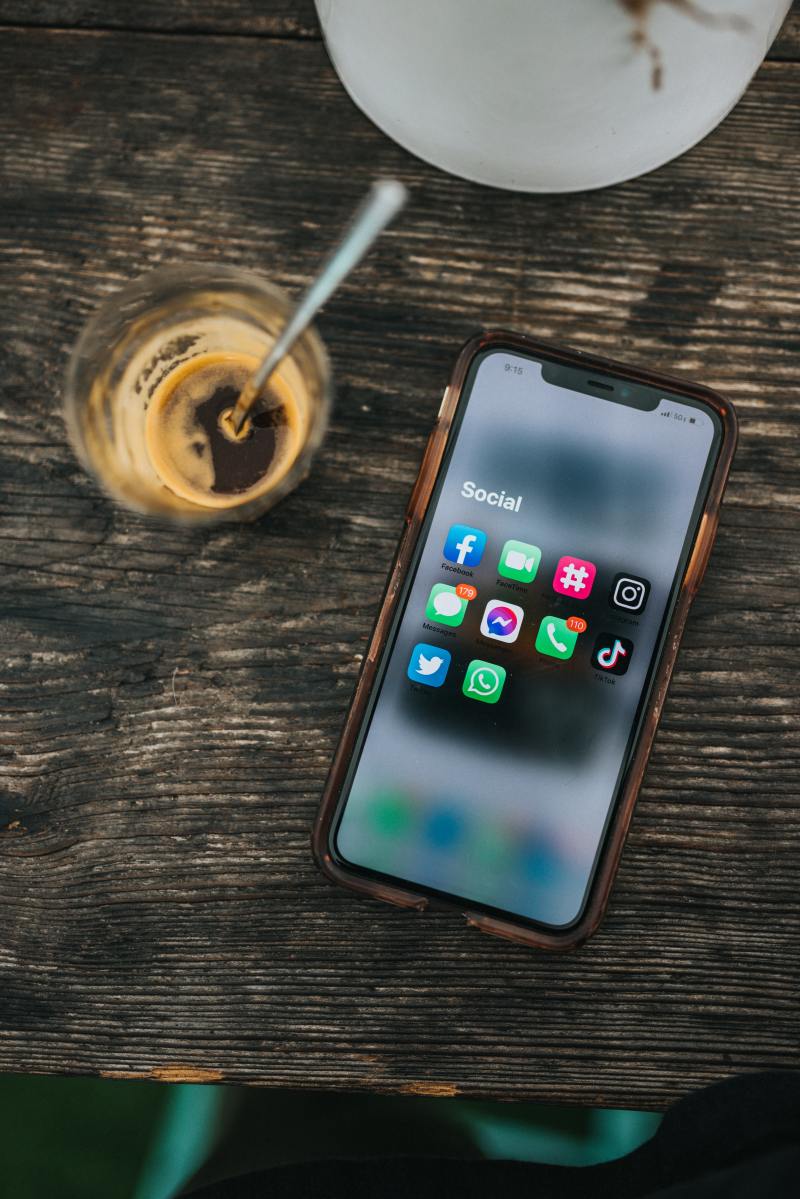It started in January. An overwhelming sense of failure, self-pity and jealousy — these feelings always came to me because of one girl.
That girl was someone who did all the “right” things: work out at 5 a.m.; maintain a healthy, plant-based diet; bullet journal and meditate. Sometimes, she was my friend — she motivated me when I felt sluggish and lazy. She helped me get through stressful times of my life by showing me that maybe it was possible to live so perfectly.
But other times, her shiny appearance and lifestyle made me feel the exact opposite. Her continued success hurt, and I began to blame myself for not being able to measure up. Often, too often, I lived in her shadow — a dangerous place that was yet so inviting that I ignored the red flags within it.
There’s always some sort of internal conflict — a quiet part of me knows that everything I’m seeing on social media is fake. But at the same time, I was convinced it was real and that I needed to become a carbon copy of the people I saw online to become happier.
Almost every day, I marveled at her life while I picked apart my own. I tore down my looks, habits and successes because I knew they would never be as good as hers. Before I knew it, everything became a toxic game of comparison.
I depended on her, and at the same time she depended on people like me, to keep her relevant and on trend. I was ready to move forward, but my mind was stuck in a limbo. Sometimes, as video after video felt like personal attacks on my routine, my body and my life, I felt as though I was in a speeding race car but wasn’t sitting in the driver’s seat. Helpless, I wondered who was behind the wheel and why they wanted to ruin me — yet I came to an understanding that the only person to blame was me. I was making up all of these things; I was tearing myself apart. Still, I often felt resentment and anger towards her, the strong emotion rushing over me like waves.
The “that girl” phenomenon is dominated by a certain demographic: most of today’s popular creators are conventionally attractive white women. Achieving that “status,” that unattainable “it,” becomes less about improving yourself internally and more about changing your physical appearance. I’ve caught myself wondering if my black hair and brown eyes were the real problem, wondering if my identity was an obstacle I had to knock down to become someone that really mattered, someone like her.
Even when I tried to set screen-time restrictions for social media or avoid my phone, the problem remained persistent. Eventually, I realized that TikTok had changed my entire mentality — even when I wasn’t physically on the app, the thought of it was always there in the back of my mind.
Halfway into quarantine, I hit a breaking point. I sat in my closet one night and let it all out. I could feel the tears dropping down my cheeks, fast and uncontrolled. Somewhere along the way, I let myself believe that I was not worth it, that I would never be worth it and no amount of Pinterest-worthy snapshots or elaborate skincare routines would fix me.
But as I thought of my loved ones — the people who cared for me, gave me hope, brought value to my life — I realized I brought value to their lives as myself, not as that girl. That night, a stronger part of me awakened. A small flame within me sparked a roaring fire, and I began to grasp my own worth.
Now I understood why I could never genuinely internalize everything that girl had taught me — the momentary motivation hid a darker motive of self-doubt and insecurity. I knew I had to take control and cut this girl out of my life. That meant saying goodbye to feelings I had gotten so used to — the overwhelming sense of failure, self-pity and jealousy. A few innocuous likes became a long journey to find the balance between pushing myself to be better and chasing an impossible ideal. My destination was quietly waiting for me, but I had to lose that girl to truly arrive.
I know there’s a better version of myself out there that I’m ready to discover. I’ve started to build strong habits and patterns, some inspired by that girl but no longer a desperate attempt to be her. Compared to the short-lived motivation of wanting to be that girl, my new perspective feels far more sustainable.
I try not to look at my phone in the mornings and instead pick up a book. I eat foods that will fuel my body and provide me with the energy to move throughout my day. And even when I do some of the same things as that girl, it’s no longer in pursuit of becoming her, but rather expressing an act of self love.
Perhaps most importantly, I’ve regained the ability to tell myself that it’s okay to take a break when I need it, because in the long run, my mind and body won’t regret the time I put aside for myself. And each time I find myself falling down that familiar rabbit hole of comparison, I find it a little bit easier to remind myself to stay away. I’m not living for her anymore — that girl who was once my friend, my enemy, my motivator, my idol, but now only a fading illusion. After all, she might have been that girl, but at least I am me.
